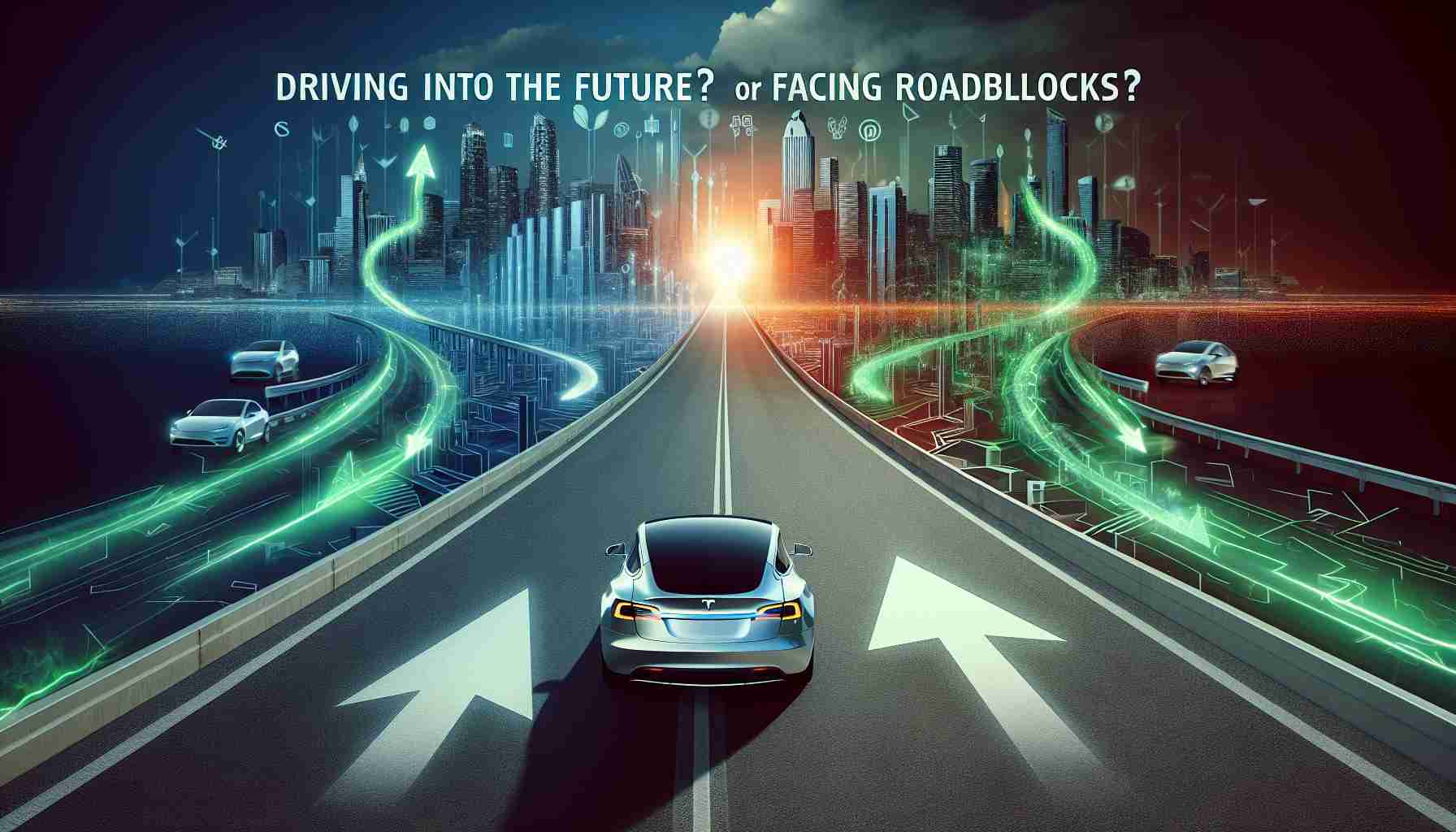Tesla’s stock has long been a barometer for the enthusiasm surrounding both electric vehicles and disruptive innovation. Recently, a fresh wave of technological advancements has begun to stir the Tesla waters, sparking debates that could redefine its future trajectory.
Revolutionary Battery Tech: At the forefront of discussions is Tesla’s recent investment in solid-state battery technology. Promising greater energy density and faster charging times, these innovations could significantly boost Tesla’s competitive edge. Solid-state batteries are being hailed as a game-changer that might propel Tesla’s stock into new realms, despite the inherent production challenges.
Competition and Autonomy: While Tesla continues to lead in autonomous driving technology, competitors are closing in. Rivals like Lucid Motors and Rivian are aggressively advancing in the electric vehicle market, posing a potential threat to Tesla’s market share. This increasing competition may influence investor sentiment, adding another layer of complexity to Tesla’s stock performance.
AI and the Full Self-Driving (FSD) System: Tesla’s FSD, powered by artificial intelligence, is also under scrutiny. Greater regulatory hurdles and safety concerns mean Tesla must navigate carefully. Yet, each software update tantalizes investors with the promise of a breakthrough that could revolutionize transportation.
As the world accelerates towards a sustainable future, Tesla’s stock is emblematic of the clash between innovation potential and market volatility. Investors remain on edge, pondering whether Tesla will ride this technological wave to new heights or face unexpected detours.
Tesla’s Technological Ride: Innovations and Market Dynamics
Emerging Trends in Tesla’s Battery Technology
Tesla’s ongoing investment in solid-state battery technology is a significant shift from traditional lithium-ion models. Solid-state batteries offer increased energy density, which not only enhances vehicle range but also supports faster charging capabilities. This advancement could position Tesla as a leader in the next-generation battery market, despite current production hurdles. As these batteries promise to be more efficient and safer, they may also contribute to a broader adoption of electric vehicles.
Comparative Analysis: Tesla vs. Competitors
The competition in the electric vehicle (EV) sector is intensifying. Companies like Lucid Motors and Rivian are making notable progress in both vehicle design and technological innovation. For instance, Lucid Motors has gained attention for its luxury EV lineup that emphasizes extended range and premium features, while Rivian focuses on adventure-ready electric trucks. This competitive landscape is reshaping market dynamics and influencing consumer preferences, potentially affecting Tesla’s market dominance.
AI Innovations in Tesla’s Full Self-Driving System
Tesla’s Full Self-Driving (FSD) system remains at the forefront of AI-driven automotive technology. Despite challenges related to regulatory approvals and safety validations, Tesla continues to innovate with frequent software updates that improve autonomous driving capabilities. These updates are crucial in maintaining investor interest and consumer trust. However, the road to fully autonomous driving is fraught with challenges, including regulatory approval and technological reliability.
Market Volatility and Investment Prospects
Tesla stock remains a beacon of innovation tied closely to market volatility. As the company pushes technological boundaries, the stock reflects investor optimism and skepticism alike. The convergence of advancements in battery technology and autonomous driving is a double-edged sword, offering both opportunities and risks. Investors keen on Tesla must weigh these factors, considering how emerging technologies could redefine the company’s future.
Security and Sustainability Factors in Tesla’s Innovation
Tesla’s commitment to sustainability is evident in its push for greener technologies and renewable energy sources. The move toward solid-state batteries also reflects a focus on safer battery solutions, with reduced flammability risks compared to traditional lithium-ion batteries. These initiatives align with global sustainability goals and could enhance Tesla’s reputation as a leader in eco-friendly automotive manufacturing.
Future Predictions: Tesla and the EV Industry
Analysts predict that Tesla will continue to lead in the EV market if it successfully integrates new technologies and addresses competition challenges. Innovations in battery technology and AI will be crucial in maintaining this edge. As global markets increasingly shift towards sustainable transport solutions, Tesla’s role could be pivotal in shaping industry standards and consumer expectations.
For more insights into Tesla’s innovations and market strategies, visit the official Tesla website.













